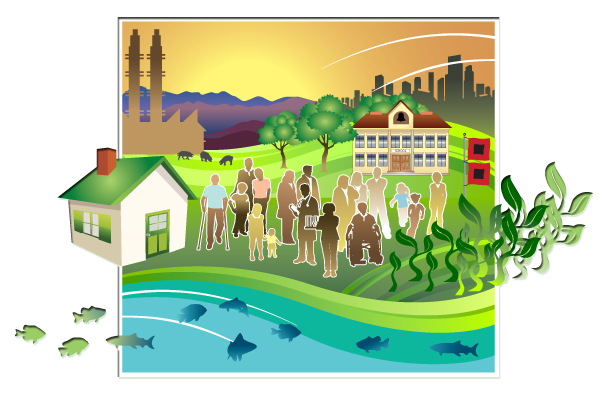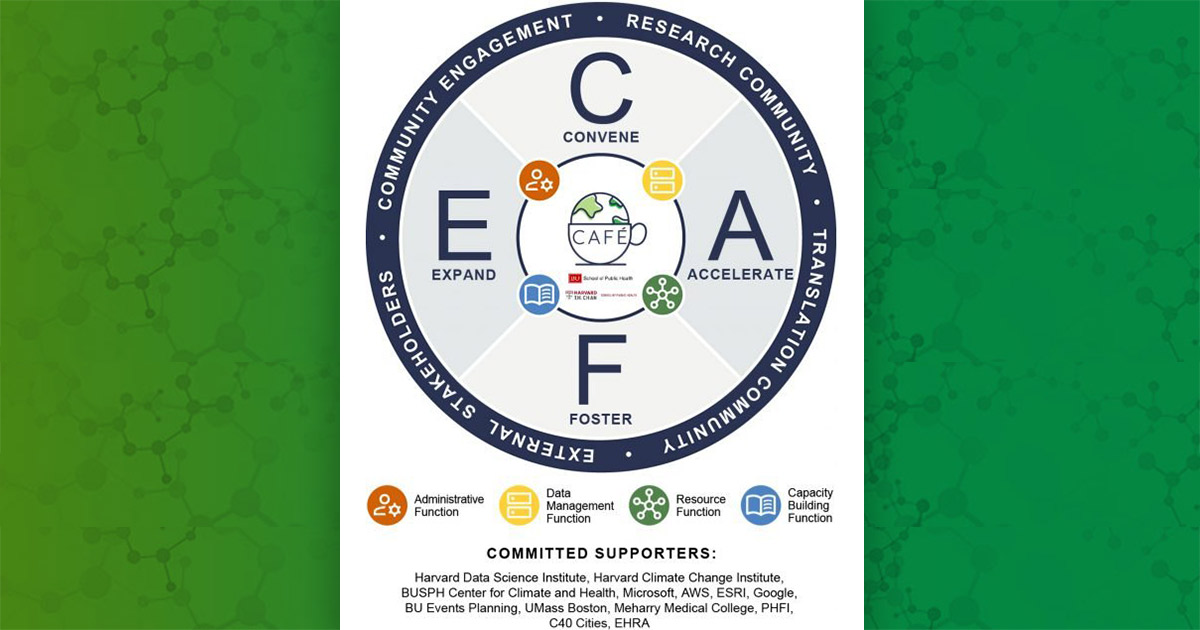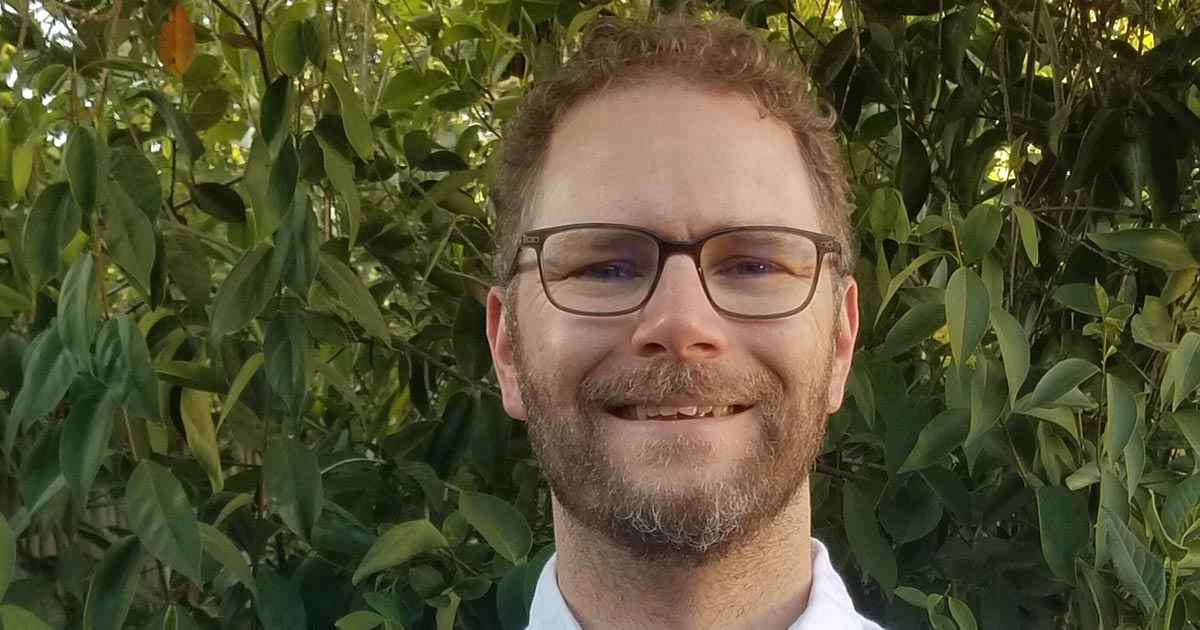NIEHS-Funded Researchers Fine Tune Report-Back Materials for People Exposed to Environmental Chemicals

A view of the Houston skyline with a bayou in the foreground. (Photo courtesy of Brad Bean of Pexels)
Researchers at Oregon State University and Baylor University worked with participants of a chemical exposure assessment study to determine how to report back the research results in a way that was meaningful and accessible. All study participants expressed a desire to receive their exposure results.
The research team conducted focus groups with residents of several Houston neighborhoods who participated in the Houston Hurricane Harvey Health (Houston-3H) study, which provided participants with silicone wristbands to track their chemical exposures around the time of the hurricane.
Participants told the researchers that they wanted to know what various exposures meant for their health. Because health effects due to exposures are not always known and many chemicals do not have a known “safe” level, it can be challenging to show how certain exposures may affect someone’s health. Despite this limitation, focus group members appreciated learning about the chemicals they were exposed to and ways in which they could reduce exposure.
The participants also conveyed preferences about report layout, such as succinct text and graphical aids. A September 2023 paper describes the focus groups and provides valuable insights into how teams conducting community engaged research can structure their report-back materials to most effectively inform participants of research results.
“A key part of community-engaged research is reporting back results to participants,” stated Diana Rohlman, Ph.D., lead investigator on the focus groups. “Doing so in ways that are most accessible and effective is critical. With this study, we wanted to look at how we displayed the results, to ensure they made sense and helped answer community questions about their exposures.”
Conducting Focus Groups on Personal Exposure Reports
The Houston-3H study was conducted in response to concerns about possible health effects from chemical exposures following flooding from Hurricane Harvey. Houston-3H ran from 2017 to 2018.Researchers collected exposure samples through silicone wristbands worn by 312 participants at two weeklong timepoints, the first within 45 days of the hurricane and the second a year later. All participants requested to receive their results, and of the 312 Houston-3H participants, 31 joined the focus groups. In conducting the focus groups, the researchers were interested in participant feedback about the study’s exposure reports, including layout, types of data included, and language used. Focus groups represented four Houston neighborhoods and were conducted at locations central to those areas.
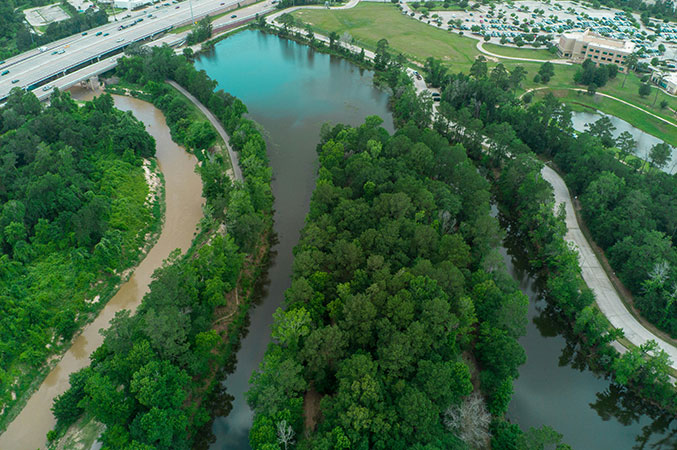
A view of Houston waterways. (Photo courtesy of Drones Flown of Pexels)
Researchers provided focus group participants with a sample report that included both community-level results and individual exposure results. Community-level reports included an overall update on the study and its results, including average exposures and key summaries of overall results. Individual-level reports included exposure results broken down into categories by chemical types, such as endocrine disruptors and flame retardants.
Focus group participants reflected on four topics:
- Concern about exposure to chemicals and how exposure may affect health.
- Report layout, including the use of colors, images, and language level.
- Participant level of trust of the research or researchers.
- Ability to understand environmental health information.
In response to the community-level report, participants said graphics helped make the information easier to understand. Focus group members especially appreciated sections that summarized results into “take-home messages.” They were most interested in exposure levels in their neighborhoods and showed the least interest in information about the hurricane’s environmental impacts, such as how many local Superfund sites were flooded.
In the individual-level reports, participants preferred dot plots over bar graphs. They thought these graphics were more personalized and easier to understand. Additionally, less text helped graphical elements stand out.
Participants suggested changes to the reports, including adding a glossary to better enable readers to understand environmental health terminology. They also raised concerns about the extent of data presented in the individual-level reports. Houston-3H measured 1,530 chemicals, making graphs and chemical information complex. Participants also requested explanations about why certain chemicals were selected for measurement while others were excluded.
“The most common request was to compare a person’s data to regulatory levels. Unfortunately, we do not have health guidelines or regulatory standards for most of the chemicals we study. That means we cannot tell a person if their exposures are high or low, of concern, or below levels of concern,” reflected Rohlman. “Based on participant feedback, this is something we try to communicate even more clearly. The information we are collecting still has value to participants, so we are now trying to show results in this context and describing what we do and do not know about these exposures.”
Designing Exposure Reports Based on Feedback
The research team incorporated focus group feedback when designing the final Houston-3H exposure reports. They significantly reformatted the final reports to have clearer graphics with detailed descriptions. They emphasized take-home messages and provided more details on types of chemicals and addressed feedback on terminology to clearly define new terms.
Several key lessons emerged from the focus groups. For example, community members would like to know their exposure results despite the unknowns about what the exposures might mean to health. In support of this, researchers should be transparent about the knowns and unknowns of exposure science and regulatory information. Additionally, reports should be formatted to be accessible to a general audience. Graphics help make data more understandable and should include concise descriptions. Finally, community members’ knowledge should be respected and considered when developing materials.
“Our goal in doing this work is always to provide research results in a way that people can learn from and use the results in their own life,” added Rohlman. “By working with study participants directly, we were able to make the reports more accessible, and we learned how to present the data to address community questions and concerns.”
Nominate Someone Now for EPA’s Clean Air Scientific Advisory Committee
EPA is seeking nominations for its Clean Air Scientific Advisory Committee. Nominees should have expertise in air quality, biostatistics, environmental engineering, ecology, exposure assessment, epidemiology, risk assessment, or toxicology. As part of its role in providing advice, information, and recommendations to the EPA Administrator on the scientific aspects of air quality criteria, the committee will assess the impact of health impacts of certain air pollutants on susceptible populations. The committee will also recommend air standards that are protective of populations with environmental justice concerns and other susceptible populations. Nominations are due April 3, 2024.
U.S. Environmental Protection Agency Updates Equity Action Plan
The Environmental Protection Agency (EPA) updated its Equity Action Plan in mid-February after engagement with community stakeholders. The plan has eight priority strategies, of which four are new since the previous plan. The priorities include improving community access to federal assistance, protecting children from exposures to environmental harms, addressing inequitable access to resources in rural communities, and strengthening community-based participatory science to achieve environmental equity. The plan also documents EPA’s equity-related accomplishments since their original 2022 plan. The updated plan fulfills Executive Order 14091, which directs federal agencies to advance equity and embed environmental justice in a whole-of-government approach.
Inaugural NIH-Funded Climate and Health Conference Builds Community of Practice
Participants to the inaugural NIH-Funded Climate and Health Conference were encouraged to help ensure the well-being of people affected by climate change. The conference occurred in February and included topics such as environmental justice, community-engaged research, climate vulnerability, and data-informed decision making. The conference attracted a diverse group of speakers and attendees, including academic researchers, physicians, representatives from community and non-governmental organizations, professionals from private foundations and industry, and stakeholders from federal and local governments. Rick Woychik, Ph.D., director of NIEHS and chair of the NIH Climate and Health Initiative executive committee, emphasized the need for unprecedented interdisciplinary collaboration to address climate change’s complex threats to health. The conference was hosted by the Climate Change and Health Research Coordinating Center, a joint effort between the Boston University School of Public Health and the Harvard T.H. Chan School of Public Health.

PEPH Environmental Health Chat Podcast Series
Autism and the Environment
PEPH Environmental Health Chat Podcast Series
Autism and the Environment
Autism affects the way people learn, behave, and interact with others. The risk of developing autism arises from the combination of genes and the environment. In the latest PEPH podcast, Staci Bilbo, Ph.D., an NIEHS-funded researcher, talks about how environmental exposures and stress during early development in the womb influence children’s development.
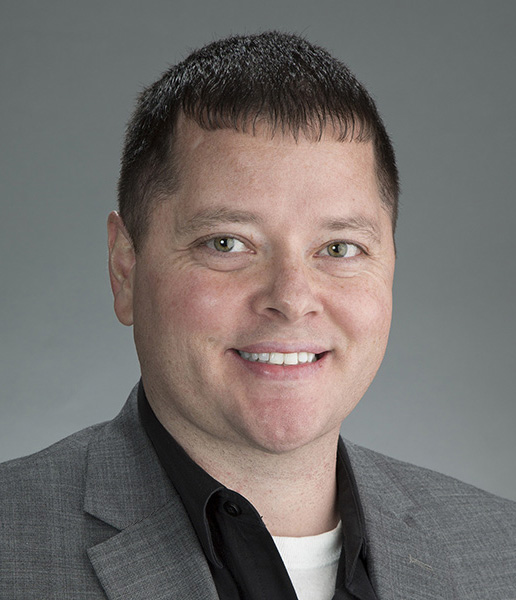
PEPH Grantee Highlight
Galen Newman, Ph.D.
Galen Newman, Ph.D., helps urban communities develop resilience plans for natural disasters such as flooding and hurricanes. Specifically, his work supports using environmentally conscious landscape designs to improve health outcomes, for example, by using plant and soil systems to absorb and redirect stormwater runoff. Newman’s expertise in community engagement and mapping urban areas has proved invaluable in helping communities adjacent to industrial facilities address flooding events, during which floodwater can carry toxic chemicals into residential areas. Newman leads the NIEHS-funded Texas A&M Superfund Research Program Center’s Community Engagement Core and is head of the Landscape Architecture and Urban Planning department.
Funding Opportunites
PHS 2023-2 Omnibus Solicitation of the NIH and CDC for Small Business Innovation Research Grant Applications (Parent SBIR [R43/R44] Clinical Trial Required)
Invites eligible United States small business concerns to submit Small Business Innovation Research (SBIR) Phase I, Phase II, Direct to Phase II (NIH only), Fast-Track (NIH only), and Phase IIB (NIH only) grant applications. The PHS 2023 -2 SBIR/STTR Program Descriptions and Research Topics for NIH, CDC, and FDA represent scientific program areas that may be of interest to applicant small businesses in the development of projects that have potential for commercialization. Small business concerns that have the research capabilities and technological expertise to contribute to the research and development mission(s) of the NIH and CDC awarding components identified in this funding opportunity are encouraged to submit SBIR grant applications in these areas. A related SBIR funding opportunity is available without a clinical trial requirement: PHS 2023-2 Omnibus Solicitation of the NIH, CDC and FDA for Small Business Innovation Research Grant Applications (Parent SBIR [R43/R44] Clinical Trial Not Allowed). Related funding opportunities are available for small business applicants interested in submitting small business technology transfer (STTR) applications: PHS 2023-2 Omnibus Solicitation of the NIH for Small Business Technology Transfer Grant Applications (Parent STTR [R41/R42] Clinical Trial Not Allowed) and PHS 2023-2 Omnibus Solicitation of the NIH for Small Business Technology Transfer Grant Applications (Parent STTR [R41/R42] Clinical Trial Required).
Deadline: April 5, 2024
SBIR/STTR Commercialization Readiness Pilot (CRP) Program Technical Assistance and Late Stage Development (SB1, Clinical Trial Not Allowed)
Encourages applications from small business concerns to the newly re-authorized Commercialization Readiness Pilot (CRP) program. The funding opportunity aims to facilitate the transition of previously or currently funded Small Business Innovation Research (SBIR) and Small Business Technology Transfer (STTR) Phase II and Phase IIB projects to the commercialization stage by providing additional support for technical assistance and later stage research and development not typically supported through Phase II or Phase IIB grants or contracts. This may include independent replication of key studies, Investigational New Drug-enabling studies, clinical studies, manufacturing costs, regulatory assistance, or a combination of services. Although a significant amount of the work in a CRP award may be subcontracted to other institutions, the small business concern is expected to maintain oversight and management of research and development throughout the award.
Deadline: April 5, 2024
Ruth L. Kirschstein National Research Service Award (NRSA) Individual Predoctoral Fellowship (Parent F31)
The Ruth L. Kirschstein NRSA Individual Predoctoral Fellowship (Parent F31) award enables promising predoctoral students to obtain individualized, mentored research training from outstanding faculty sponsors while conducting dissertation research in scientific health-related fields relevant to the missions of participating NIH Institutes and Centers. The proposed mentored research training must reflect the candidate’s dissertation research project and is expected to clearly enhance the individual’s potential to develop into a productive, independent research scientist.
Funding opportunities are also open for the Ruth L. Kirschstein NRSA Individual Fellowship for Students at Institutions with NIH-Funded Institutional Predoctoral Dual-Degree Training Programs (Parent F30), which supports promising predoctoral students who are matriculated in a combined M.D./Ph.D. or other dual-doctoral degree training program, and who intend careers as physician/clinician-scientists; the Ruth L. Kirschstein NRSA Individual Senior Fellowship (Parent F33), which supports experienced scientists who wish to make major changes in the direction of their research careers or who wish to broaden their scientific background; the Ruth L. Kirschstein National Research Service Award (NRSA) Individual Fellowship for Students at Institutions Without NIH-Funded Institutional Predoctoral Dual-Degree Training Programs (Parent F30) to enhance the integrated research and clinical training of promising predoctoral students, who are matriculated in a combined M.D./Ph.D. or other dual-doctoral degree training program, and who intend careers as physician/clinician-scientists; the Ruth L. Kirschstein National Research Service Award (NRSA) Individual Postdoctoral Fellowship (Parent F32) to support research training of highly promising postdoctoral candidates who have the potential to become productive, independent investigators; and the Ruth L. Kirschstein National Research Service Award (NRSA) Individual Predoctoral Fellowship to Promote Diversity in Health-Related Research (F31-Diversity) to enhance the diversity of the health-related research workforce by supporting the research training of predoctoral students from diverse backgrounds.
Deadline: April 8, 2024
NIH Support for Conferences and Scientific Meetings (Parent R13 Clinical Trial Not Allowed)
Supports high quality scientific conferences that are relevant to NIH's mission and to public health. A conference is defined as a symposium, seminar, workshop, or any other organized and formal meeting, whether conducted face-to-face or via the internet, where individuals meet for the primary purpose of exchanging technical information and views or exploring or clarifying a defined subject, problem, or area of knowledge, whether or not a published report results from such meeting. NIH encourages conference grant applicants to enhance diversity by increasing the participation of individuals from diverse backgrounds, including those from underrepresented groups, in the planning, implementation, and participation in the proposed conference. Eligible organizations include higher education institutions, nonprofits, for-profit organizations, local governments including Indian/Native American Tribal Governments, the Federal government, and other organizations such as faith-based or community-based organizations.
Deadlines: April 12, 2024; August 12, 2024; December 12, 2024
Notice of Special Interest (NOSI): Data Informed, Place-Based Community-Engaged Research to Advance Health Equity
This NOSI is meant to stimulate community-engaged research that leverages geospatial data to probe the influence of geographic factors on disease development and health outcomes. Its goal is to use place-based research to help advance health equity in different communities. Applicants must select the IC and associated NOFO to use for submission of an application in response to the NOSI. NIEHS is interested in applications that integrate place-based environmental data with other data types and sources (such as human behavior and time-activity patterns, environmental data collected by low-cost sensor networks or wearable technologies, biomonitoring data, and other molecular or clinical outcome data) to improve exposure estimates at both the community and individual level, to advance understanding of the effects of environmental exposures on health outcomes, and to inform prevention and intervention strategies. Applicants may apply through PA-20-185 or PA-20-195.
Deadlines: June 5, 2024; October 5, 2024
Intervention Research to Improve Native American Health (R01 Clinical Trial Optional)
Supports research on interventions to improve health in Native American populations, including:
- Etiologic research that will directly inform intervention development or adaptations.
- Research that develops, adapts, or tests interventions for health promotion, prevention, treatment, or recovery.
- Where a sufficient body of knowledge on intervention efficacy exists, research on dissemination and implementation that develops and tests strategies to overcome barriers to the adoption, integration, scale-up, and sustainability of effective interventions.
The inclusion of Native American investigators serving on the study team or as the program director or principal investigator is strongly encouraged. This funding opportunity is part of the Intervention Research to Improve Native American Health initiative, which also includes Intervention Research to Improve Native American Health (R21 Clinical Trials Optional), and Intervention Research to Improve Native American Health (R34 Clinical Trial Optional). For the R01 and R21 funding mechanisms, NIEHS is interested in applications that focus on the development, adaptation, efficacy, effectiveness, implementation, or sustainability of culturally appropriate interventions to prevent or mitigate the health impacts of environmental exposures that disproportionately impact Native American populations. For the R34 funding mechanism, NIEHS is interested in applications that support the initial development of a culturally appropriate clinical trial or research project in preparation for health promotion or disease prevention interventions addressing the health impacts of environmental exposures that impact Native American populations.
Deadline: October 1, 2024
Environmental and Climate Justice Community Change Grants Program
The Environmental Protection Agency (EPA) is accepting applications for its Environmental and Climate Justice Community Change Grants program. The program provides Inflation Reduction Act funds in environmental and climate justice activities to benefit disadvantaged communities through projects that reduce pollution, increase community climate resilience, and build community capacity to address environmental and climate justice challenges. These place-based investments will be focused on community-driven initiatives to be responsive to community and stakeholder input. The entities eligible to apply under this opportunity are:
- A partnership between two community-based nonprofit organizations.
- A partnership between a community-based nonprofit organization and one of the following:
- A federally recognized tribe.
- A local government.
- An institution of higher education.
Other organizations and entities may be able to participate and be involved in the Community Change Grants projects as collaborating subrecipients and/or procurement contractors selected in compliance with competition requirements. The EPA is accepting applications on a rolling basis; therefore, interested applicants are encouraged to apply early. To apply for this opportunity, see the announcement on Grants.gov.
Deadline: November 21, 2024
Upcoming PEPH-related Events
NIH Community Engagement Alliance Consultative Resource Webinar: Identifying NIH Funding Opportunities for Community Organizations (webinar). Speakers will present on finding NIH funding opportunities, understanding how to submit a funding application, and developing supporting documents. This webinar is one of a five-part series designed to support community organizations and research teams in applying for NIH funding. Future topics include building a research team, grant writing strategies, and moving from knowledge to action. Registration for the consultative resource webinar is available.
North Carolina State University: Symposium on Data Science and Environmental Health Research (Raleigh, North Carolina). Speakers will discuss approaches to working with big data and research activities in population genomics and environmental health disparities. Speakers at this interdisciplinary meeting will be from NIEHS, the U.S. Environmental Protection Agency, and several universities. Registration for the symposium is free but required.
Why Indoor Chemistry Matters Workshop: Reaching Communities for Action (Washington, DC and virtual). The National Academies of Science, Engineering, and Medicine is hosting a workshop on improving indoor air quality in homes and public settings. Discussions will center around topics including data analysis and public health messaging, collaborating for impactful action, and more. Attendees can register to join virtually or attend in person.
National Integrated Heat Health Information System National Meeting (virtual). The third annual meeting for the National Integrated Heat Health Information System will focus on engaging communities and developing a shared vision for community heat resilience. The meeting’s three themes are defining the problem of heat, personal exposure to heat, and community action and response to heat. The National Integrated Heat Health Information System is an interagency information system developed by the National Oceanic and Atmospheric Administration and the Centers for Disease Control and Prevention to provide actionable, science-based information to protect people from heat. Registration for the national meeting is available
NIH Community Engagement Alliance: Community-Centered Research Design (webinar). This webinar will cover strategies for various aspects of participatory research with communities and organizations, such as study design, partnership structures, engagement planning, and bidirectional communication. The webinar is hosted by the Community Engagement Alliance Consultative Resource, which supports NIH-funded research teams with best practices for community-engaged research. Registration for the webinar is available.
Air Sensors International Conference (ASIC): Advancing Science and Engaging Communities (Riverside, California). The conference will focus on how communities can better use air sensors to take action. ASIC invites participants from academia, government, communities, and commercial interests to share experiences and learn from and connect with others. Registration for the ASIC conference is open.
Association for Advancing Participatory Sciences (AAPS): Conference for Advancing Participatory Sciences (online). This conference will include keynote presentations and panel discussions on topics related to participatory sciences. There will also be workshops and discussions focused on turning ideas into action and networking events. Registration for the AAPS conference is open.
National Environmental Health Association’s Annual Educational Conference and Exhibition (Pittsburgh, Pennsylvania and virtual). The conference will have more than 250 educational sessions on topics such as air quality and climate change. Registration for the conference (including single-day options) is available.



